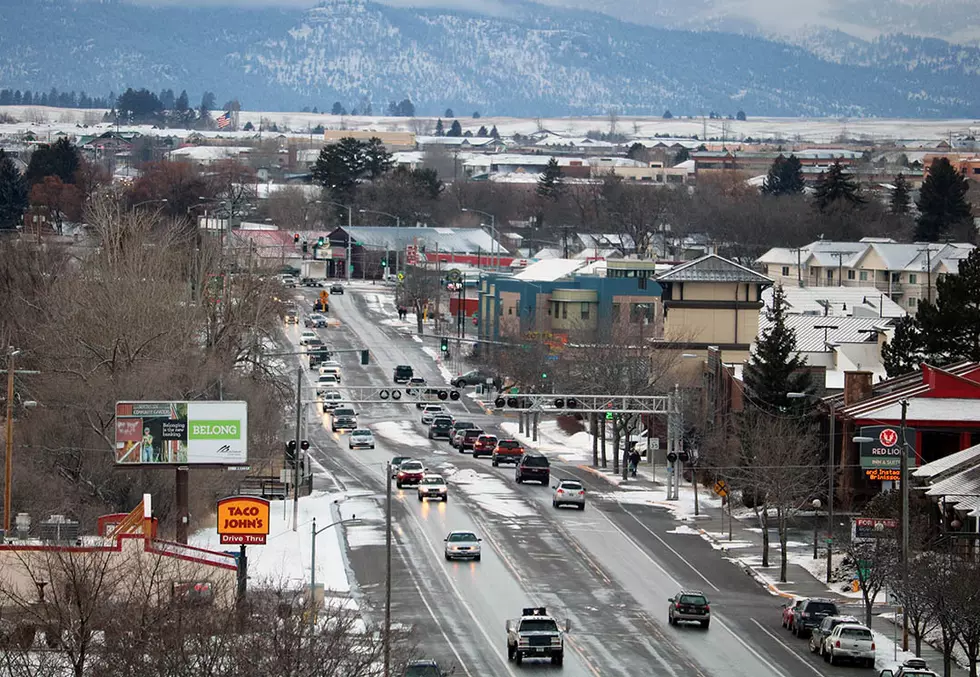
Private investment program could fund housing, commercial projects in Missoula
A new investment tool included in last year's tax bill could bring affordable housing and commercial development to Missoula's West Broadway corridor and areas to the north.
The census tract was identified by the state as a so-called opportunity zone – a new incentive adopted by Congress that allows taxpayers to invest in a qualified opportunity fund and defer tax payments on capital gains.
“The city can encourage through goal setting and visioning what we'd like to see in that area, but ultimately, it's a completely private tool,” said Eran Pehan, manager of the city's Office on Housing and Community Development.
The program was tucked into the Tax Cuts and Jobs Act adopted by Congress, though rules surrounding the program have been vague until now. That changed last month when the U.S. Treasury released more guidance, giving city leaders a better idea of what the program will and won't do.
“Private developers can invest in privately held, qualified opportunity funds, and they can use the funds to develop projects that meet the criteria,” Pehan said. “The new initiative is expected to bring billions of dollars of investment capital to the nation's lowest income neighborhoods.”
In general, Pehan said, a company can defer taxes by placing capital gains into a qualified opportunity fund, where the money becomes available to developers for projects within an opportunity zone.
Under the program, states designated more than 8,700 census tracts considered economically distressed as opportunity zones. Montana designated 25 zones and Missoula got one.
“These projects will potentially provide affordable housing, will provide new retail or commercial, or jobs for individuals living in these zones,” Pehan said. “They will focus on creating communities that support and allow individuals in those neighborhoods to thrive.”
The zone designated in Missoula generally extends from Scott Street to North Reserve, and from Interstate 90 to the Clark Fork River. It loosely fits the boundaries of an urban renewal district established by the city two years ago.
“What cities and municipalities across the nation are doing right now is identifying what their priorities and goals in those opportunity zones are,” said Pehan. “Once we identify priorities and goals, we can move on to identify high-opportunity sites that we can market to investors to bring that tax deferment incentive into our community for development.”
Pehan said those opportunities, while private, will involve a community vision for the area's included in the zone. She said the city will help drive that process.
“The goals for that neighborhood have to come from that neighborhood,” said Pehan. “The city of Missoula is really looking for tangible ways to connect people to growth and opportunity, and to ensure all the residents in that area have a chance to participate in that process.”
Elsewhere in the country, as billions of dollars of investment role in, the program is funding a wide range of projects, from sports stadiums to hotels and a large mixed-use projects.
It's not yet known how much funding the program will net in Missoula, or what projects it might generate.
“We do know that funds are underway and that we have local individuals who are in the process of structuring qualified opportunity funds,” said Pehan. “The investments are starting to flow in. The onus is on the community to see what we really want to see happen in those opportunity zones, and to work with those investor funds to get those projects on the ground.”
Larry Kudlow, director of the White House National Economic Council, said the tax bill passed by the GOP established the program. In a recent conference call, he said it was up to each state to identify their zones.
More than $100 billion in new capital is expected to flood into the program nationwide, he said.
“The state of Montana must identify a place that gets special tax treatment for investments,” Kudlow said. “Our goal is that the booming economy will lift all boats. But we recognize there are places that need targeted help as well.”
The zone identified in Missoula loosely fits the North Reserve/Scott Street Urban Renewal District, established by the city two years ago. While the investment funds and projects are privately held, the city will encourage development that adheres to existing plans for the area.
“We'll do what we can to encourage development and to encourage investors to look at those guiding plans to determine what's in the best interest of these areas as they develop,” Pehan said. “Ultimately, this is a private tax deferment tool, and so it will largely be us working as much as possible with the private sector to actualize those visions.”
